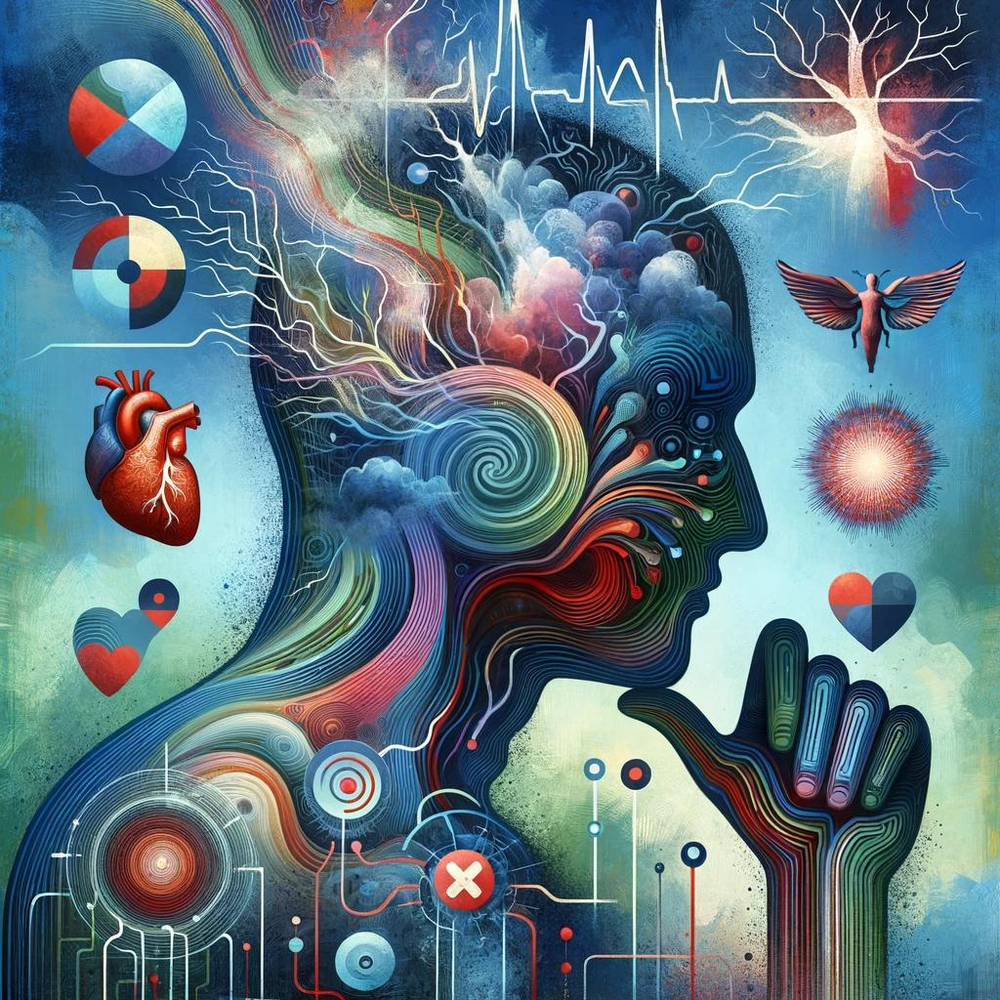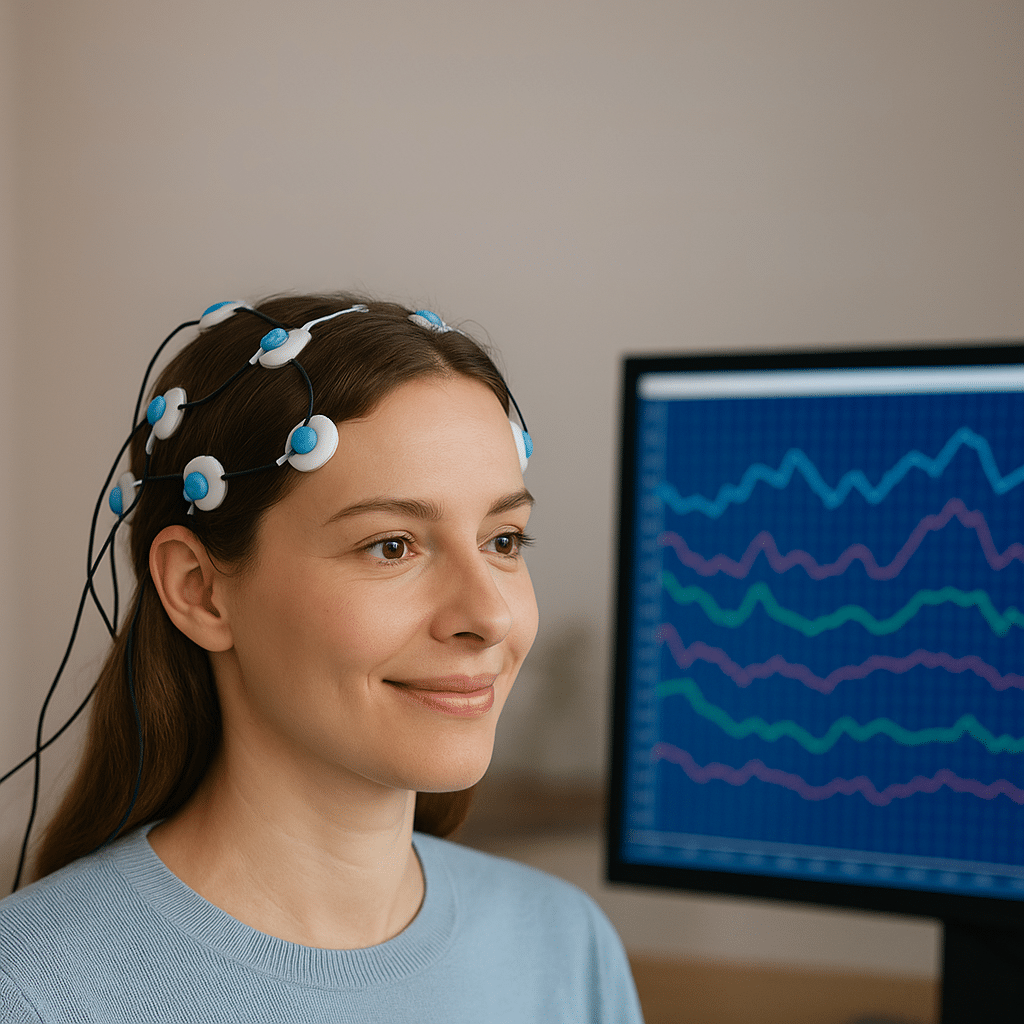Anxiety, a pervasive condition affecting millions worldwide, manifests through a spectrum of anxiety symptoms that can significantly hinder daily life. This includes constant worry, physical symptoms like a racing heart, or an overwhelming sense of dread. Recognizing these symptoms is crucial for well-being, as early detection is key to effective treatment. Anxiety transcends a simple feeling of unease, representing a complex disorder with various types, each presenting unique challenges. From generalized anxiety disorder (GAD), marked by ongoing worry about routine matters, to specific phobias causing intense fear of particular situations or objects, understanding these signs is the first step toward recovery. Today, we will explore the profound effects of anxiety, with an emphasis on the importance of awareness in facilitating recovery.
Understanding Anxiety
Generalized Anxiety Disorder (GAD), one of the most prevalent forms, is characterized by persistent and excessive worry about a wide range of things, where the worry is disproportionate to the actual impact of the events. Individuals may feel restless, have difficulty concentrating, and experience physical symptoms such as fatigue and muscle tension.
Social Anxiety Disorder involves extreme worry and self-awareness regarding ordinary social interactions. The concern frequently involves an intense fear of being evaluated negatively by others or acting in a way that could lead to humiliation or ridicule.
Specific Phobias are intense, irrational fears of specific objects or situations, such as heights, flying, or seeing blood. These fears can provoke a panic response even though the perceived danger is not real.
The experience of anxiety encompasses both physiological and psychological aspects. Physiologically, it can trigger the body’s fight-or-flight response, leading to symptoms like increased heart rate, sweating, and trembling. Psychologically, it can severely impact one’s ability to think clearly, make decisions, and participate in daily activities.
Symptoms of Anxiety
Psychologically, anxiety can infiltrate every thought and action. Individuals may find themselves ensnared in a web of excessive worry about future events or the general uncertainties of life. This often couples with a pronounced difficulty concentrating, where focusing on tasks at hand becomes a herculean effort. Moreover, irritability may surface, not as a standalone mood but as a reflection of the internal turmoil wrought by anxiety.
Physically, anxiety demonstrates that it is not just a mental state but rather a condition that permeates the entire body. An increased heart rate is a common harbinger, signaling the body’s heightened state of alertness. Sweating, trembling, and dizziness are also telltale signs, each a testament to anxiety’s profound impact on bodily functions.
Upon deeper examination, social anxiety disorder is characterized by an acute fear of social situations, wherein even the idea of being evaluated or examined can be paralyzing. Meanwhile, generalized anxiety disorder (GAD) is marked by a pervasive worry over everyday matters, far exceeding normal concerns.
These severe anxiety symptoms have the potential to greatly diminish one’s quality of life. Noting these indicators serves as the initial phase in pursuing assistance and discovering routes toward a more serene and meaningful existence.
Causes and Risk Factors
Anxiety can stem from genetic factors, indicating that a family history of anxiety disorders might predispose individuals to similar challenges. This genetic link highlights the importance of recognizing both our innate susceptibilities as well as empowering ourselves to pursue proactive support strategies.
Environmental influences play a significant role, with life experiences such as trauma or significant stressors acting as catalysts for the development of anxiety disorders. Such experiences might include the loss of a loved one, job stress, or major life transitions, each leaving an indelible mark on our psychological well-being.
The brain chemistry involved in anxiety disorders suggests a biological underpinning, with imbalances in neurotransmitters, the brain’s chemical messengers, contributing to anxiety symptoms. This insight offers a pathway toward understanding how certain medications can help restore balance and reduce symptoms.
Risk factors further refine our understanding, highlighting trauma, stress due to illness, personality traits such as a propensity toward worry, and substance misuse as key contributors. Each factor can increase susceptibility to anxiety, shaping the way individuals experience and respond to their environment.
Complications and When to Seek Help
Untreated anxiety can lead to far-reaching complications, impacting both mental and physical health. The journey from occasional worry to chronic health issues and depression highlights the critical nature of addressing anxiety disorders promptly. These complications can range from depression, a common comorbidity, to debilitating health concerns that affect every facet of life, underscoring the urgency of treatment for anxiety attacks.
Recognizing the right moment to seek professional help is vital. It’s time to reach out when anxiety interferes with daily activities or relationships or brings about a profound sense of despair. Early intervention can significantly alter the course of an anxiety disorder, paving the way for a healthier, more balanced life. Remember, seeking help is a sign of strength, not weakness, and it’s the first step toward recovery.
Treatment and Management of Anxiety
Effective management and treatment of anxiety encompass a holistic approach tailored to the individual’s needs. At Zeam Health & Wellness, we advocate for a comprehensive strategy that includes psychotherapy, medications, and lifestyle changes. Psychotherapy, particularly cognitive-behavioral therapy, has proven efficacy in addressing the root causes of anxiety, empowering individuals with coping strategies for managing symptoms. Medications, such as antidepressants and anxiolytics, offer relief for many, reducing the intensity of anxiety symptoms.
Emphasizing early intervention is crucial, as timely treatment can significantly improve outcomes. Personalized treatment plans are at the core of our approach, recognizing that each individual’s experience with anxiety is unique. Incorporating strategies for anxiety treatment at home, such as mindfulness exercises, stress management techniques, and regular physical activity, can complement clinical treatments effectively.
At Zeam Health & Wellness, we are dedicated to providing the best treatment for anxiety, guiding our community toward a path of recovery and resilience. If you’re looking for anxiety treatment near you or want to explore support options, our team is here to provide you with the tools and resources to effectively manage anxiety. Our goal is to help you achieve wellness and balance by empowering you with strategies for living a healthy, balanced life.
Take the Next Step Toward Wellness
Zeam Health & Wellness emphasizes the critical need to recognize anxiety signs early rather than facing them alone. A range of treatments, including psychotherapy, medication, and lifestyle changes, can significantly improve life quality when tailored to personal needs. Early detection and customized intervention are key to effective management.
For those seeking anxiety treatment in Sacramento, Zeam Health & Wellness stands ready to support you. Our dedicated team is committed to providing compassionate, comprehensive care designed to meet you where you are on your path to wellness. Let us be your partner in navigating the road to recovery, embracing a future where anxiety no longer controls your life.




